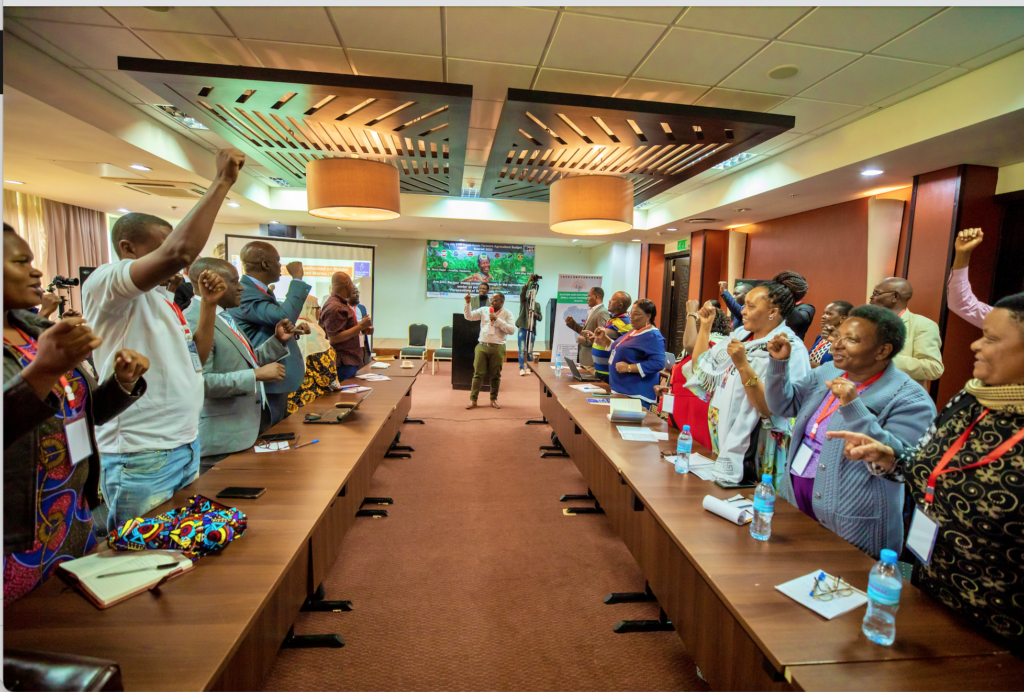ESAFF Summit Urges EAC Member States to Prioritize Agricultural Investment to Combat Food Insecurity
The Eastern and Southern Africa Small Scale Farmers Forum (ESAFF) has called on East African Community (EAC) member states to increase their agricultural budgets to boost food production and address food shortages resulting from drought and climate change. The call was made during the 6th EAC Agriculture Budget Summit, which focused on sustainable solutions to tackle food insecurity and climate change in the region.
Hakim Baliraine, the Chair of ESAFF, said that African countries must allocate sufficient funds to their agricultural budgets as part of the implementation of the Malabo Declaration. He emphasized the need to improve the agricultural sector and increase food availability in Africa to overcome famine and address poor nutrition and food issues.
He said an increased budget, to 10 per cent or over of the national budget for agriculture, would help improve the agricultural sector and increase food availability in Africa, which is facing drought and hunger in some countries.
“It is now necessary for EAC member states to increase their food budgets to overcome the famine and enable farmers to grow various crops to address the issue of poor nutrition and food,” he said.
Apollo Chamwela, Chairman of Mtandao wa Vikundi vya Wakulima Tanzania (MVIWATA), which unites small-scale farmers across Tanzania to have a common voice to defend their interests, said farmers should be educated on the impact of climate change and provided with natural methods to cope with these changes without harming the environment.
The Head of the Agriculture and Food Security Department of EAC, Fahari Marwa, stressed the importance of developing policies and regulations that enable the agricultural sector to grow rapidly. Marwa called on farmers to use various techniques and new agricultural technologies, such as tractors and irrigation, to ensure efficient and productive farming practices. He also emphasized the need to use pesticides and fertilizers correctly and to follow guidelines and regulations to ensure that agriculture remains productive without harming the environment.
“Climate change issues are diverse, so we must cultivate productive agriculture that follows guidelines to solve hunger problems, including the correct use of pesticides, including the seed bill and fertilizer law that is in the process of being passed into law in the East African Legislative Assembly (EALA),” he said.
He called on farmers to use various techniques and new agricultural technologies, such as tractors and irrigation, to ensure that each EAC member state progresses, including growing vegetables and fruits to make agriculture more commercially viable.
The agricultural budget meeting for small-scale farmers in EAC countries mainly focused on agriculture and climate change. It stressed the need for significant agricultural investment to achieve better results and proper land use in harvesting a wide variety of food crops.
ESAFF called for the diversification of crops to address poor nutrition and food insecurity, with a focus on growing vegetables and fruits to make agriculture more commercially viable. The summit emphasized the need for significant agricultural investment to achieve better results and proper land use in harvesting a wide variety of food crops. The summit also highlighted the importance of sustainable farming methods and natural techniques to cope with the impact of climate change.
The 6th EAC Agriculture Budget Summit called for sustainable solutions to combat food insecurity and climate change, urging EAC member states to prioritize agricultural investment for a sustainable future. The summit stressed the need for increased agricultural investment and the development of policies and regulations to enable the agricultural sector to grow rapidly, especially in the field of inputs, such as pesticides and fertilizers, and new agricultural technologies, including tractors and irrigation.


